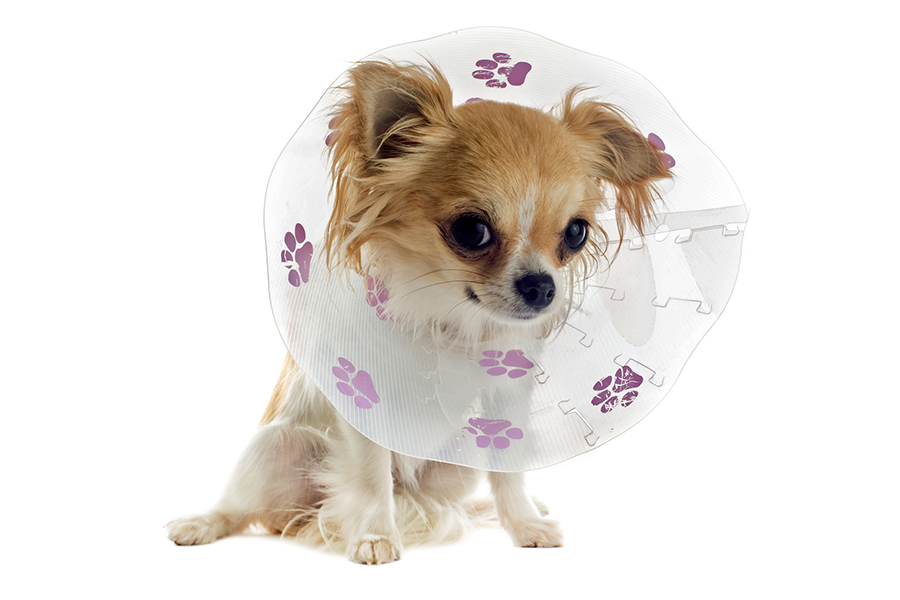Pyometra
What is a Pyometra?
Pyometra literally means “pus in the uterus” and is a potentially life threatening disease of non-sterilised female dogs and cats.
What causes a Pyometra?
In the normal uterus thousands of microscopic glands produce mucous which helps to keep the uterus healthy.
The number of glands and the amount they secrete is regulated by hormones. Being “on heat” causes repeated exposure to high levels of reproductive hormones. These hormones lead to changes in the tissue of the uterus and release excess fluid by the glands. This excess fluid provides an excellent environment for bacteria to grow in.
The chance of your dog suffering from pyometra increases as you dog gets older.
How does it affect my pet?
Most commonly animals show signs of infection and sometimes blood poisoning. Symptoms often include a high temperature, excessive drinking, decreased appetite, vomiting, depression and collapse. If left untreated at this stage the animal usually dies.
Occasionally an animal will present with a discharge from the vulva. These animals may not be as sick because the infected material (pus) is able to drain out of the body.
How do we know if my pet has Pyometra?
A diagnosis is made based on history (pyometra often happens after an animal has been “on heat”), clinical signs and physical examination.
Many serious conditions can show similar symptoms as pyometra so additional diagnostic procedures may be required. These include blood tests, X-rays, and possibly ultrasound examination and are done to confirm the original diagnosis.
How do we treat a Pyometra?
The best treatment is to surgically remove the uterus and ovaries under general anaesthetic. This has the same effect as sterilizing the animal so in future she will not come “on heat” and not fall pregnant.
Because most animals are very sick at the time of admission to hospital they usually need to stay in hospital for a couple of days. Intravenous fluids and antibiotics are often required to help stabilise your pet and reduce the risk associated with placing a very sick animal under a general anaesthetic.
You may have heard of other ways that a pyometra can be treated while allowing you pet to retain her reproductive organs. This treatment can be dangerous and can make your pet increasingly ill. It can only be used in a very select number of cases.
How do I care for my pet once she comes home?
- She must be kept very quiet (ie no running or jumping) for at least 10 days after the surgery. This helps the wound to heal and prevent hernias.
- She needs to be given antibiotics to help her overcome the infection
- You need to look after her stitches. Do not bathe them or let your pet get wet. If she tries to lick or chew her stitches it is important that she has a bucket on her head to stop her. If she is allowed to lick the stitches she may push bacteria into the wound causing an infection. Alternatively she may even chew the stitches out too early and require another general anaesthetic to replace them.
- When an animal has been really sick we usually like you to revisit in a few days time so we can do a quick check of her temperature and other clinical measurements. However, if you become concerned at any stage or have any questions, please feel free to call or revisit sooner.
What is the long-term prognosis for my pet?
Once your pet recovers from surgery and infection the prognosis is excellent.




